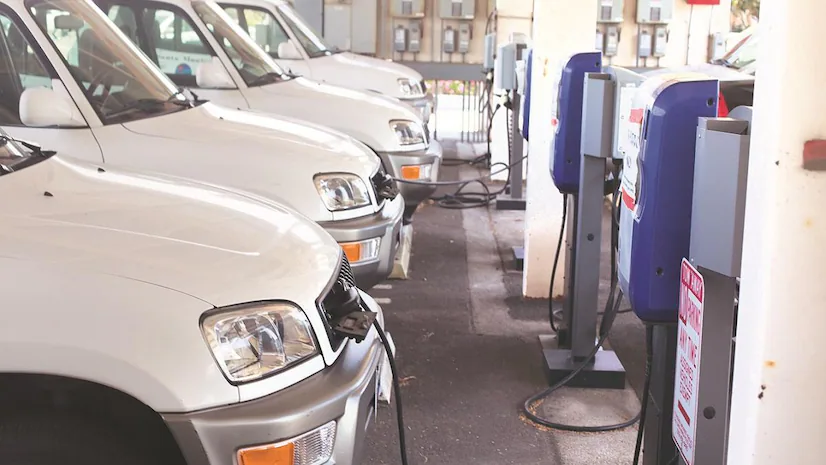The Indian automobile industry is gearing up for a significant shift towards electric vehicles (EVs) as companies and the government focus on capital expenditure to support the growth of this sector. The allocated capital expenditure will primarily be utilized for the construction of green-field plants dedicated to EV production, increased research and investment in battery plants, and the development of grid charging infrastructure.

A major objective of this capital expenditure plan is to establish manufacturing facilities with the capacity to produce approximately two million EVs, with a further goal of scaling it up to 7.2-7.5 million units by 2030. Furthermore, two-wheeler manufacturers in India are also making significant preparations to contribute to this shift, with plans to build a massive 15.5 million EV manufacturing capacity. If successful, this would account for 75 percent of the installed capacity of internal combustion engine (ICE) powered two-wheelers.
Vinod Agrawal, the President of the Society of Indian Automobile Manufacturers Association (Siam), emphasized the critical role of investing in EV manufacturing capacity to propel India towards becoming a $5 trillion economy. According to Agrawal, the government and the industry are currently collaborating closely to achieve this ambitious target.
Maruti Suzuki, India’s largest carmaker, is ambitiously planning to increase its manufacturing capacity to around four million units. Presently, Maruti Suzuki has a capacity of 2.5 million cars. The company has also set its sights on launching six electric vehicles by 2031, as announced during its annual earnings conference. According to a report, Maruti Suzuki is expected to introduce its first EV model in 2025.
Other prominent automobile manufacturers in India, such as Mahindra and Tata Motors, are also making significant capital expenditures towards EV production. Mahindra plans to invest Rs 10,000 crore, while Tata Motors aims to invest Rs 15,000 crore over the next 5-7 years. Additionally, Hyundai has outlined plans to invest a substantial amount of Rs 20,000 crore in EV manufacturing.
The concerted efforts of both the government and the automobile industry reflect the commitment to transitioning towards greener and more sustainable transportation options. The allocation of capital expenditure towards building new EV plants, enhancing battery research and investment, and bolstering grid charging infrastructure demonstrates a collective determination to shape India’s automotive landscape.
By strategically focusing on EV manufacturing capacity expansion, India aims to accelerate the adoption of electric mobility and reduce the nation’s carbon footprint. This comprehensive approach, encompassing multiple stakeholders, sets the stage for a future where EVs become a dominant force in the Indian automobile market, creating both economic growth and environmental benefits.
Read More –Will Electric Vehicles Revolutionize the Job Market?














